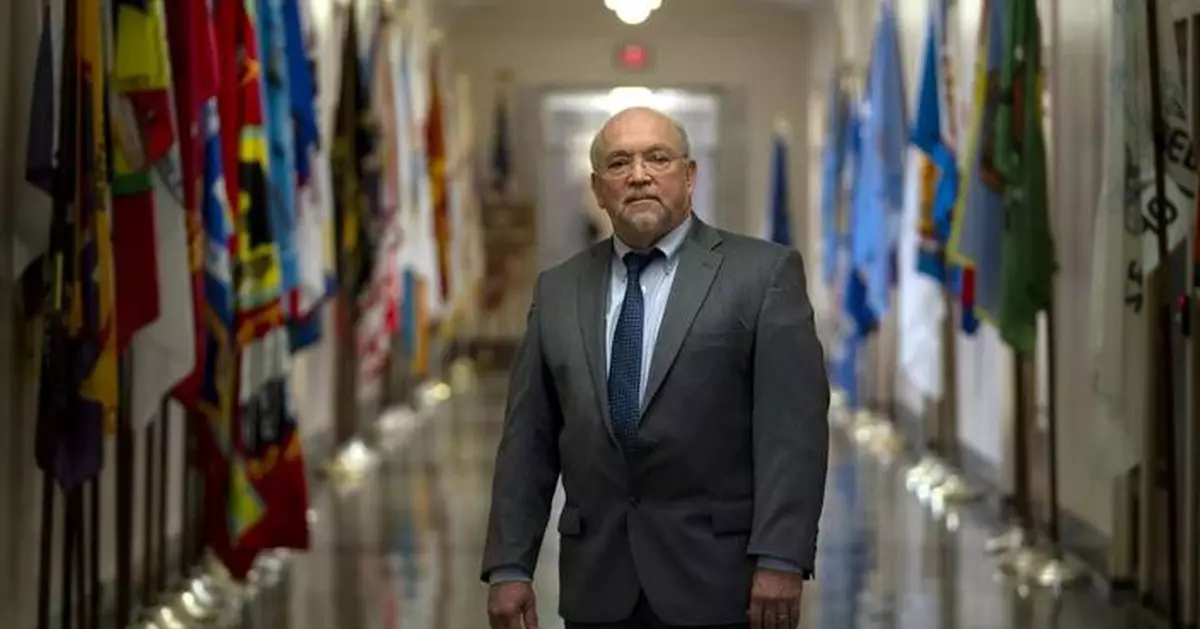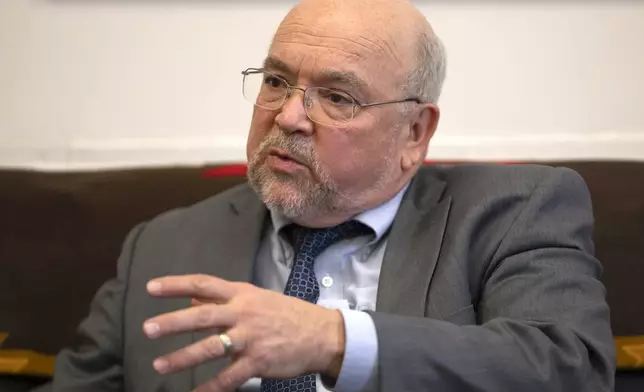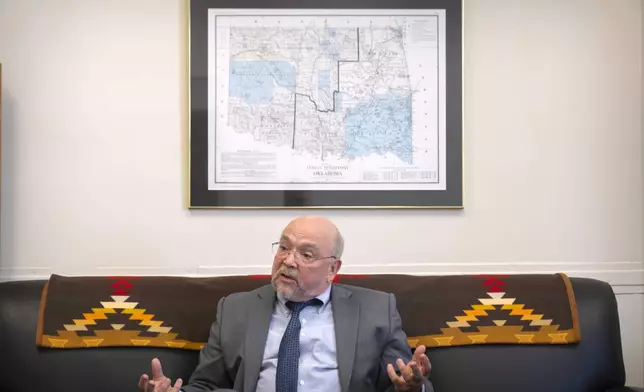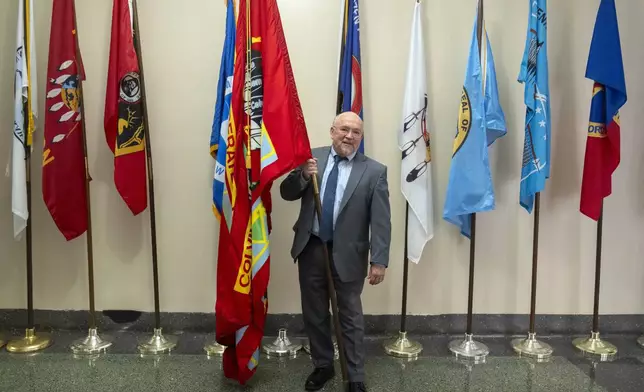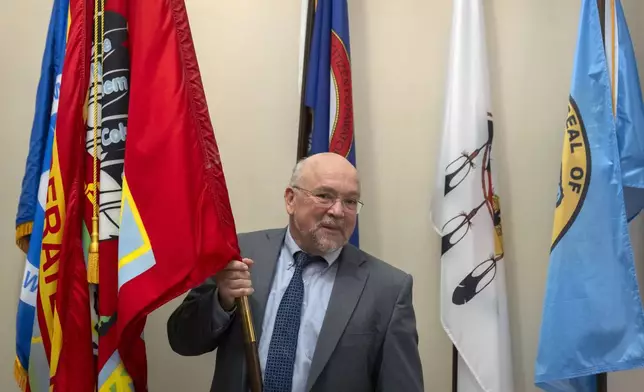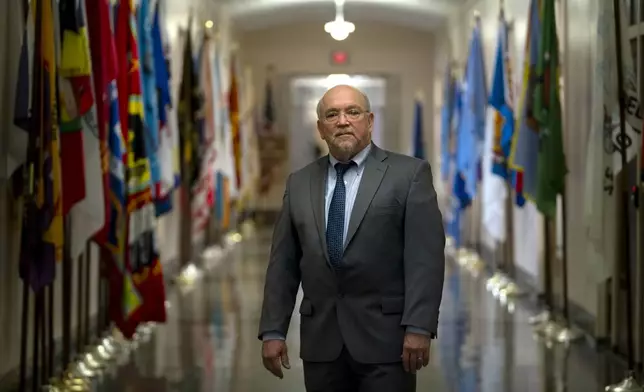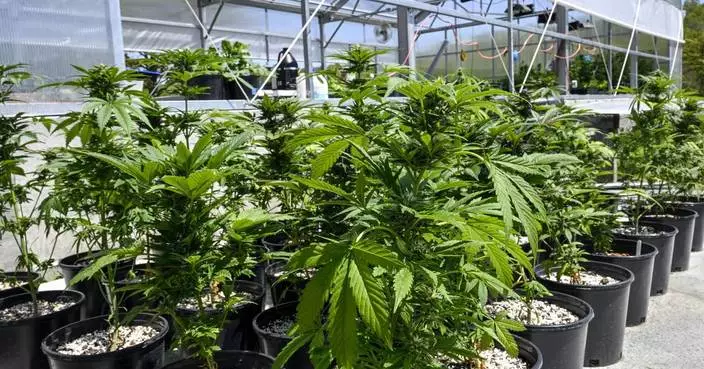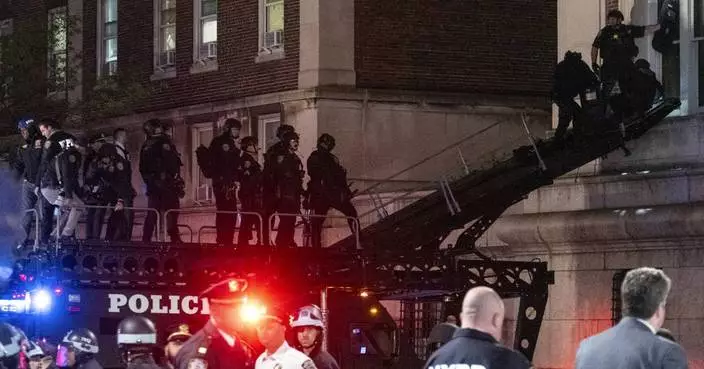WASHINGTON (AP) — A quarter-century ago, the Justice Department had few meaningful relationships with Native American tribes.
While the federal government worked with state and local police and courts, tribal justice systems did not have the same level of recognition, said Tracy Toulou, who oversaw the department's Office of Tribal Justice from 2000 until his recent retirement. “They were essentially invisible,” he said.
Attorney General Merrick Garland said Toulou built the office from an idea into an “institution within the Justice Department."
Its relationships with the nation's 574 federally recognized tribes are important, in part because federal authorities investigate and prosecute a set of major crimes on most reservations.
Public safety statistics reflect the serious challenges. Native Americans and Alaska Natives are more than twice as likely to be victims of a violent crime, and Native American women are at least two times more likely to be raped or sexually assaulted compared with others.
For Toulou, a descendant of the Washington state-based Confederated Tribes of the Colville Reservation, part of addressing those grim realities is expanding the power of tribal justice systems.
Tribes had been barred, for example, from prosecuting non-Natives under a 1978 Supreme Court decision, even if the crime happened on reservations, making it harder to seek justice in many cases. That changed somewhat in 2013 with a federal law that allows tribes to prosecute non-Natives in a limited set of domestic violence cases. The authority was expanded in 2022 to include cases such as violence against children and stalking.
“That was a key change … tribes were now viewed as participants in the justice system on a more or less equal basis with everybody else, which should never have changed,” said Toulou, who was a federal prosecutor in Montana early in his career.
Still, much works remains to be done.
Tribal police and courts are stretched thin and are coping with conflicting jurisdictional issues and underfunding, leaders told the Senate Indian Affairs Committee at a session last month that drew more than 600 comments.
Police Chief Algin Young of the Oglala Sioux Tribe in South Dakota said he has six to eight officers to patrol nearly 4,700 square miles (12,200 square kilometers) against an “influx of guns, illegal drugs including fentanyl, methamphetamine and heroin, and violent crime that can only be described as shocking and extremely dangerous."
“Our people don’t feel safe in the communities, and our visitors do not, either,” he said.
The challenges comes against a historical backdrop of injustices committed by the federal government against Native Americans, including massacres, forced assimilation of Native children in abusive boarding schools and the removal of many tribes from their ancestral land.
One of Toulou's personal regrets is he does not speak his tribe's language because his grandparents were sent to boarding schools, breaking the links that would have passed it down through generations.
"We have a unique responsibility to Indian tribes,” Toulou said, partly due to obligations the U.S. made in treaties, through Congress and other acts. “There is a moral responsibility that is underpinned by those treaties to support those tribal nations and interact with them on a government-to-government basis.”
In recent years, that has meant heeding calls to address the crisis of Indigenous people who have been killed or gone missing. Thousands of those cases remain unsolved, hundreds have been closed due to issues such as jurisdictional conflicts and many families say authorities regularly fail to communicate about the status of pending cases.
Toulou was a leader in the effort to create a federal strategy to respond to violence against Native people in 2022, after the passage of the Not Invisible Act and Savanna’s Act.
He also helped develop legislation such as the Safeguarding Objects of Tribal Patrimony Act of 2021 aimed at halting the removal of historic archaeological remains and the Tribal Law and Order Act of 2010. That law improved the collection and reporting of Native crime data, expanded the sentencing authority of tribal courts and allowed tribes such as the Mille Lacs Band of Ojibwe Indians in Minnesota to expand their policing powers.
“That really makes a big difference,” said the tribe's chief executive, Melanie Benjamin. “We have the experience, we have the commitment of our own tribal members and our community members that want to be a part of public safety to protect and serve."
Working within the federal bureaucracy can be like “pushing a big rock up a steep hill," said W. Ron Allen, chairman of the Jamestown S’Klallam Tribe in Washington state. But tribal leaders have become more sophisticated in navigating it over the past two decades, he said.
“Tracy has played a critical role,” said Allen, citing Toulou's help in educating federal lawyers on Native culture, from restorative justice to traditional land management.
The Justice Department also takes part in civil litigation involving tribes, including environmental cases and hunting and fishing rights.
In Toulou's place as acting director is Daron Carreiro, a career attorney from the Environment and Natural Resources Division who is also steeped in laws and policies around tribal communities, sovereignty and public safety.
As he begins his retirement in Montana, Toulou is hoping to see improved communication between the federal law enforcement and victims' families and more Native people working at the Justice Department.
Garland said Toulou's “legacy will be felt at the Justice Department and in tribal communities for generations to come.”

Tracy Toulou, the outgoing Director of the Office of Tribal Justice, speaks during an interview in his office at the Department of Justice, Thursday, March 14, 2024, in Washington. For more than two decades, Toulou has confronted the serious public safety challenges facing Indian Country by working to expand the power of tribal justice systems. Today, tribal law enforcement finally has a seat at the table when federal authorities coordinate with state and local police, according to the Justice Department’s point person on Native American tribes. (AP Photo/Mark Schiefelbein)

Tracy Toulou, the outgoing Director of the Office of Tribal Justice, speaks during an interview in his office at the Department of Justice, Thursday, March 14, 2024, in Washington. For more than two decades, Toulou has confronted the serious public safety challenges facing Indian Country by working to expand the power of tribal justice systems. Today, tribal law enforcement finally has a seat at the table when federal authorities coordinate with state and local police, according to the Justice Department’s point person on Native American tribes. (AP Photo/Mark Schiefelbein)

Tracy Toulou, the outgoing Director of the Office of Tribal Justice, holds the flag of the Colville Confederated Tribes, his tribal affiliation, alongside flags of tribal nations at the Department of Justice, Thursday, March 14, 2024, in Washington. For more than two decades, Toulou has confronted the serious public safety challenges facing Indian Country by working to expand the power of tribal justice systems. Today, tribal law enforcement finally has a seat at the table when federal authorities coordinate with state and local police, according to the Justice Department’s point person on Native American tribes. (AP Photo/Mark Schiefelbein)
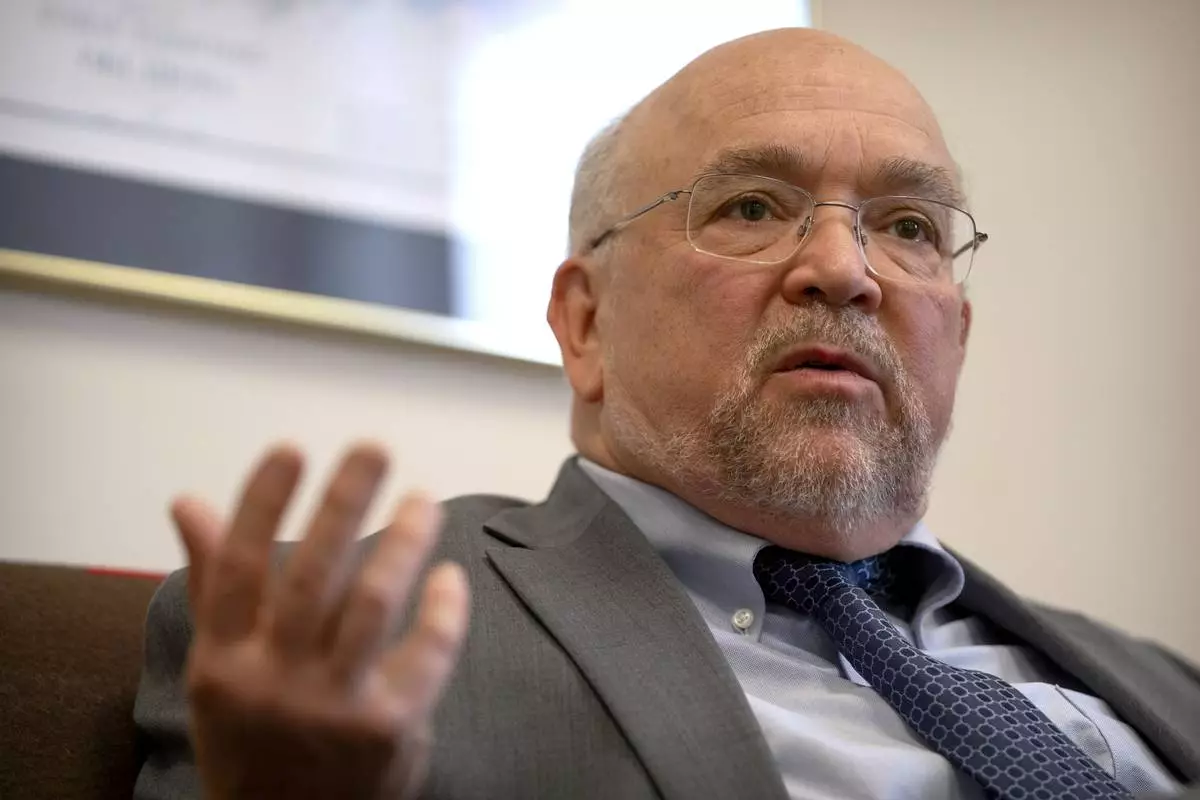
Tracy Toulou, the outgoing Director of the Office of Tribal Justice, speaks during an interview in his office at the Department of Justice, Thursday, March 14, 2024, in Washington. For more than two decades, Toulou has confronted the serious public safety challenges facing Indian Country by working to expand the power of tribal justice systems. Today, tribal law enforcement finally has a seat at the table when federal authorities coordinate with state and local police, according to the Justice Department’s point person on Native American tribes. (AP Photo/Mark Schiefelbein)

Tracy Toulou, the outgoing Director of the Office of Tribal Justice, holds the flag of the Colville Confederated Tribes, his tribal affiliation, alongside flags of tribal nations at the Department of Justice, Thursday, March 14, 2024, in Washington. For more than two decades, Toulou has confronted the serious public safety challenges facing Indian Country by working to expand the power of tribal justice systems. Today, tribal law enforcement finally has a seat at the table when federal authorities coordinate with state and local police, according to the Justice Department’s point person on Native American tribes. (AP Photo/Mark Schiefelbein)

Tracy Toulou, the outgoing Director of the Office of Tribal Justice, stands in a hallway lined with flags of tribal nations at the Department of Justice, Thursday, March 14, 2024, in Washington. For more than two decades, Toulou has confronted the serious public safety challenges facing Indian Country by working to expand the power of tribal justice systems. Today, tribal law enforcement finally has a seat at the table when federal authorities coordinate with state and local police, according to the Justice Department’s point person on Native American tribes. (AP Photo/Mark Schiefelbein)


